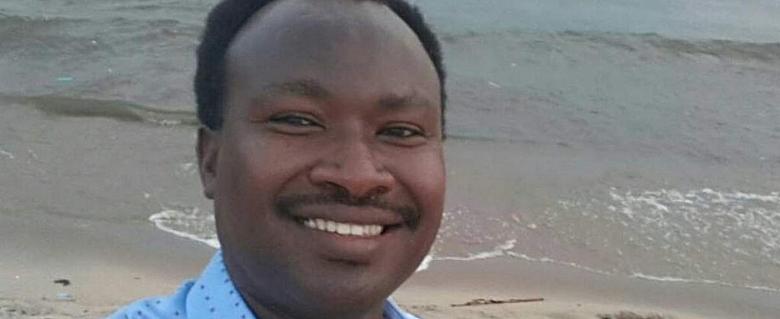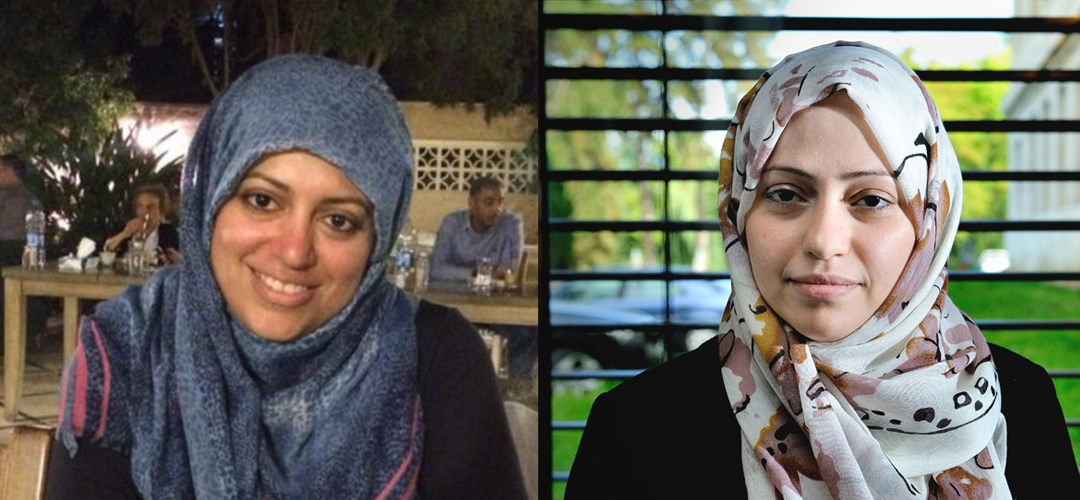Good News Stories - July 2021
Cuba
After a month in detention at the General Calixto Garcia hospital in Havana, prisoner of conscience Luis Manuel Otero Alcantara, a member of the San Isidro Movement, was released on 31 May 2021 without any charges presented against him nor conditions for his release.
The San Isidro Movement is a group of Cuban artists, journalists and academics formed in 2018 to protest against the government's censorship of artistic expression in Cuba.
State security officials took Luis Manuel from his home On 2 May where he was carrying out a hunger strike in protest over authorities having confiscated artwork from his home days earlier.
Luis explained that state security officials subjected him to constant physical surveillance and prevented him from leaving the hospital. According to his testimony, he had no access to communication with the outside world and had restricted visits during his time in hospital. During the latter part of his detention, he said state security officials registered anyone who entered his room, included nurses and doctors
He also told Amnesty International that during the month of his detention, he was allowed outside only around 3 times, he believes so that the authorities could film him and show proof of his whereabouts as international pressure on his case mounted. For much of his detention, according to his testimony, the authorities kept the bright hospital lights on day and night, which under international human rights standards could amount to ill-treatment.
In Cuba, political activists, independent journalists and artists, as well as human rights defenders are regularly detained, harassed and intimidated solely for defending and exercising their freedom of expression. Luis Manuel should have never been deprived of his liberty in the first place. After his release, he deeply thanked Amnesty International for all the support.
Although it is good news that Luis Manuel is now home, the harassment and intimidation he has endured for his human rights work is shameful. Amnesty will continue to monitor on his situation.
Source.
------------------------------------------------------------------------------------------------------
Burundi
Human rights defender Germain Rukuki has been released after serving more than four years in prison. Germain was convicted and jailed in 2018 and spent four years behind bars on trumped-up charges for his human rights work.

His release comes just days after the appeal court on 4 June reduced his sentence from 32 years to one. The court overturned his conviction for “participation in an insurrectional movement”, “threatening internal state security”, and “attack on the authority of the State.” His conviction for “rebellion” was, however, upheld. With his sentence reduced to one year in prison and a fine of 50,000 Burundian francs (roughly 25 USD).
Responding to the news, Amnesty International’s Regional Director for East and Southern Africa, Deprose Muchena, said: “It is terrific news that Germain is finally free. He should never have been jailed in the first place - as he was arrested, prosecuted and convicted simply for his human rights work. This is a great moment for Germain, his family and friends and the hundreds of thousands of people around the world who tirelessly campaigned for his release. It is also a victory for human rights.”
Source.
------------------------------------------------------------------------------------------------------
Saudi Arabia
Two Saudi women’s rights campaigners have been released from prison, three years after a sweeping crackdown by Crown Prince Mohammed bin Salman targeting female activists who'd peacefully advocated for greater freedoms, rights groups said Sunday. The women had been sentenced to five years imprisonment, two of which were suspended.

It now appears that all the women’s rights activists detained in the 2018 sweep have now been released from prison, although the status of one woman remains unclear.
The London-based ALQST rights group, which primarily focuses on Saudi Arabia, said the two women — Samar Badawi and Nassima al-Sada — were released sometime late Saturday or early Sunday. Human Rights Watch also confirmed their release.
They had been vocal critics of Saudi Arabia’s male guardianship laws, which gave husbands, fathers and in some cases a woman’s own son control over her ability to obtain a passport and travel. They had also advocated for the right of women to drive. Both restrictions have since been lifted.
The two women remain barred from travel abroad for five years as part of their conditional release, rights groups contacted by The Associated Press said. Like other Saudi women's rights activists released from prison, rights groups said the two women likely face bans on speaking to the media and posting online about their case.
Most of the women detained in the crown prince's campaign were arrested in May 2018, but Badawi and al-Sada were detained several weeks later in July of that year.
Nearly a dozen of the women previously told Saudi judges they were caned on their backs and thighs, electrocuted and waterboarded by masked men during interrogations. Some women say they were forcibly touched and groped, and threatened with rape and death. One of the women attempted suicide in prison.
The Saudi government has not commented on the individual cases of most of the women nor publicized their charges.
It is unclear what Badawi and al-Sada were found guilty of. Several people with knowledge of al-Sada's case said she'd been charged under a cybercrime law and was found guilty of undermining public order by communicating with foreign journalists and organizations.
Badawi is a well-known human rights activist based in Jiddah who first came to prominence when she petitioned Saudi courts to remove her father as her legal guardian on grounds he was barring her from marrying potential suitors. Years later, she spoke out in defense of her brother Raif Badawi, who is serving 10 years in prison over internet posts critical of the ultraconservative religious establishment. He was publicly flogged in 2015 under King Abdullah. The mother of two was later married for a time to Waleed Abul-Khair, a human rights lawyer currently serving 15 years imprisonment.
Al-Sada is a prominent women's rights activist from the Eastern Province, an area heavily populated by the kingdom's minority Shiite Muslims. She was also outspoken in defense of greater rights for Shiites. Amnesty International said she had been held in solitary confinement for a year, and was not allowed to see her children or her lawyer for months at a time.
The arrests of the women, some of whom are mothers, grandmothers and well-known college professors, caught many by surprise because it came around the same time the kingdom lifted its longstanding ban on women driving in June 2018.
Months later, the crown prince faced widespread international criticism over the killing of Washington Post columnist Jamal Khashoggi inside the Saudi Consulate in Istanbul in an operation planned by two of the prince’s top aides, although neither was found guilty by Saudi courts. Eleven men faced trial in Saudi Arabia for the killing. The kingdom maintains the crown prince had no knowledge of the operation, despite a U.S. intelligence assessment implicating him.
Activists with knowledge of female activist Maya’a al-Zahrani's case said she was convicted in December by the same counter-terrorism court as prominent rights activist Loujain al-Hathloul and received a similar sentencing. It's unclear whether al-Zahrani has been released from prison.
Al-Hathloul was released from prison in February after serving nearly three years in detention. She'd been convicted on charges related to her activism, such as agitating for change, pursuing a foreign agenda and using the internet to harm public order.
Several of the Saudi men who supported women's rights activists remain detained.
0 comments